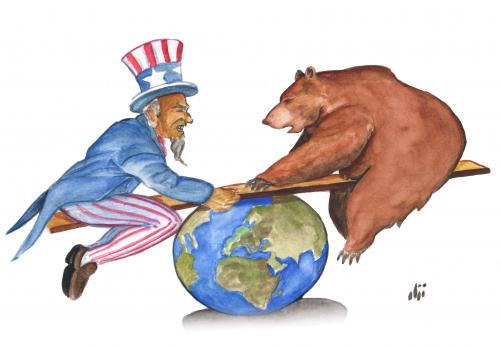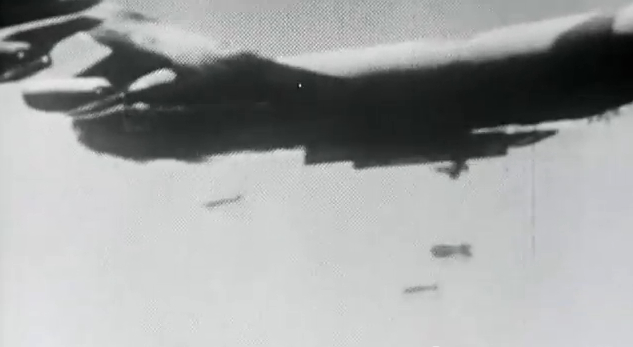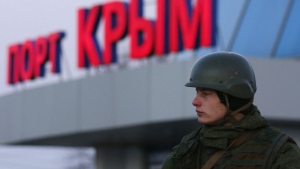In taking account of some recent events and interactions between the two sides, Aaron Willschick examines the peculiarity and unpredictability of the NATO-Russia relationship.
The Cold War may be over two decades in the past, but NATO’s relationship with Russia remains at best fragile and in some respects extremely peculiar. They may not be threatening each other with nuclear attacks, but recent events have only added to the volatility and peculiarity that currently exists between the two sides. On the one hand, NATO-Russian relations have shown signs of strength and improvement with an ability to work together on significant issues. On the other hand, relations have deteriorated to a level not seen in many years, with the two sides publicly expressing fears about the future of their relationship. In considering some recent events, the confusion regarding NATO-Russian relations becomes even more apparent which makes any future predictions about their dealings extremely uncertain.
Russian Army Upgrade
In what might be one of the lowest points of their post-Cold War relationship, Russian President Vladimir Putin told Russia’s defense ministry and top military officials last week to upgrade military capabilities over the next few years as part of a response to attempts by NATO and the United States to tip the balance of power in their favor. Putin affirmed that Russia is witnessing insistent attempts to shift the balance of power and voiced complaints over U.S. plans to create a new missile defense system in Europe. As part of his response, Putin said that “the Russian armed forces must move to a dramatically new level of capabilities as soon as in the next three to five years.” The stated goal of the proposed European missile defense system is to protect the U.S. and Europe from Iranian missiles, but Russia has repeatedly criticized the system feeling that it is instead intended to counter its own missiles. This has been an alarming development in the NATO-Russian relationship which has increased fears that animosity will lead to a potentially aggressive response from the Kremlin or even an arms race.
“Significant Progress” in NATO-Russian Relations
In the week preceding Putin’s comments, NATO Secretary-General Anders Fogh Rasmussen held talks with Russian Foreign Minister Sergey Lavrov at NATO Headquarters on NATO-Russian relations. In regards to their relationship, Rasmussen commented that NATO and Russia should build on the “significant progress” that was made in practical cooperation between the two sides last year. In 2012, the NATO-Russia Council (NRC) took forward cooperation in a number of key areas, including training counter-narcotics officers from Afghanistan, Pakistan and Central Asia, training maintenance crews for the Afghan Air Force helicopter fleet and expanding transit facilities through Russia for the NATO-led mission in Afghanistan. In December, NRC foreign ministers agreed on a work programme for 2013 which expands existing projects and also builds on cooperation in areas such as counter-piracy and counter-terrorism. Rasmussen and Lavrov also discussed ways to advance the NATO-Russia dialogue on missile defence, the same issue Putin voiced concerns over just a few days later.
Cooperation in Counter-Piracy
A particular strongpoint of recent NATO-Russian relations has been their collaboration in combating maritime piracy. A boarding team of NATO personnel in charge of Operation Ocean Shield and assault forces of the Russian Federation ship SEVEROMORSK trained together last week in counter-piracy activities as part of a bilateral exercise between NATO and Russia in the Gulf of Aden. The event was organized in the context of counter-piracy cooperation agreed to by the NRC and it represents a large step forward towards NATO-Russia interoperability in counter-piracy activities in the Indian Ocean. In reference to the training mission, Rear Admiral Antonio Natale commented “this day will be a milestone in the cooperation between the Russian Federation and NATO,” and “its effects will not only be limited to counter-piracy activities but offers the prospect of other types of constructive engagement in the future.”
Friend or Enemy?
Even though they are for the most part unrelated, what these recent events and interactions between NATO and Russia illustrate is the peculiarity that exists in relations between them. How can in one instance the Russian President be preparing for a military buildup against the West while in another instance a high ranking Russian Foreign Minister is praising relations between the two sides? Such events offer up a perplexing snapshot of where the NATO-Russia relationship stands and where it is heading in the future. Despite Putin’s comments, it would seem that relations are not as poor as they may appear to be on the surface. Putin has been known to publically put forth a strong stance against the West and it seems that he is doing so once again. It is likely that NATO-Russia relations will continue down the same rocky road that they are currently on for the foreseeable future. With NATO and the United States now so influential in Eastern Europe, Russia will likely continue to feel a geopolitical threat coming from the West. As long as that is occurring, relations will probably remain both hot and cold at the very same time.




